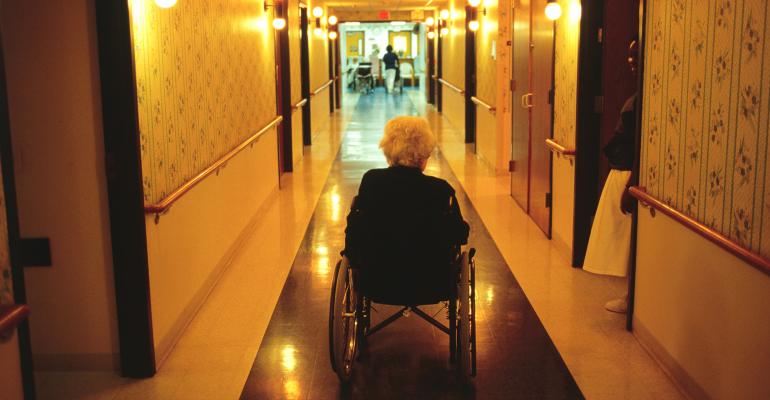(Bloomberg)—Private-equity firms would be required to disclose more information on their ownership of US nursing homes and other health-care facilities under legislation set for introduction in Congress this week.
Representative Pramila Jayapal, a Democrat, for a second time seeks to push a bill that would mandate greater transparency on live-in care homes, where complicated corporate structures can mask true ownership.
The Healthcare Ownership Transparency Act, which failed to move out of committee when introduced last year, would compel firms to list investors, debt, fees collected, and performance details. It would also establish a task force to make recommendations “to address the adverse effects of healthcare consolidation and private equity’s involvement in healthcare.”
Jayapal said an increasing number of worrisome reports and data about PE-owned nursing homes prompted the bill’s reintroduction. She is the chair of the House Progressive Caucus, and represents a district in Washington state, where the first nursing-home death in the pandemic was recorded.
“Private equity and consolidation in our health-care system lead to worse outcomes and higher bills for patients,” she said in an emailed statement. “Health care is a human right and the care people receive shouldn’t be determined by an investor’s bottom line.”
Scrutiny of private equity’s growth in health care has been mounting at both the state and federal level. Last year, a House committee held hearings examining poor patient care at for-profit nursing homes during the early days of the pandemic.
About 70% of nursing homes in the US are run by for-profit operators. Private-equity industry participants disagree strongly with the idea that care at their nursing homes is inferior.
The Biden administration has proposed a rule that would require explicit disclosure of private-equity and real estate investment trust stakes in nursing homes, citing studies that showed higher mortality at PE-owned facilities. About 165,000 nursing-home residents have died of Covid-19 since the beginning of the pandemic, according to the Centers for Medicaid and Medicare Services.
Growing private-equity ownership in health care puts patients and the businesses it acquires at risk by adding debt and demanding a shorter-term timeline and “outsize returns,” according to a report published this week by Public Citizen, a not-for-profit consumer group that advocates for a national health program.
The American Investment Council, which represents the private-equity industry, said its findings point to a different conclusion, citing a report from last year showing research on PE-acquired hospitals does “not suggest deteriorating outcomes” for patients.
“Academic research supports that private equity backed healthcare providers operate similar or better than non private equity backed facilities,” American Investment Council President and Chief Executive Officer Drew Maloney said in an emailed statement. “Private capital is critical to meeting the healthcare needs and innovative products for patients nationwide.”
The American Health Care Association and National Center for Assisted Living, an industry group, pointed to an earlier statement issued in response to the White House rule that called private-equity ownership of homes a “red herring” that distracted from “real issues,” such as staff shortages and insufficient Medicaid funding.
The industry invests money in facilities that often no one else wants, said Steven Shill, who heads the health-care practice at consulting firm BDO USA. Hundreds of homes have closed during the pandemic, while the remainder have grappled with staffing shortages and higher costs.
--With assistance from Ellen Braitman.
© 2023 Bloomberg L.P.





